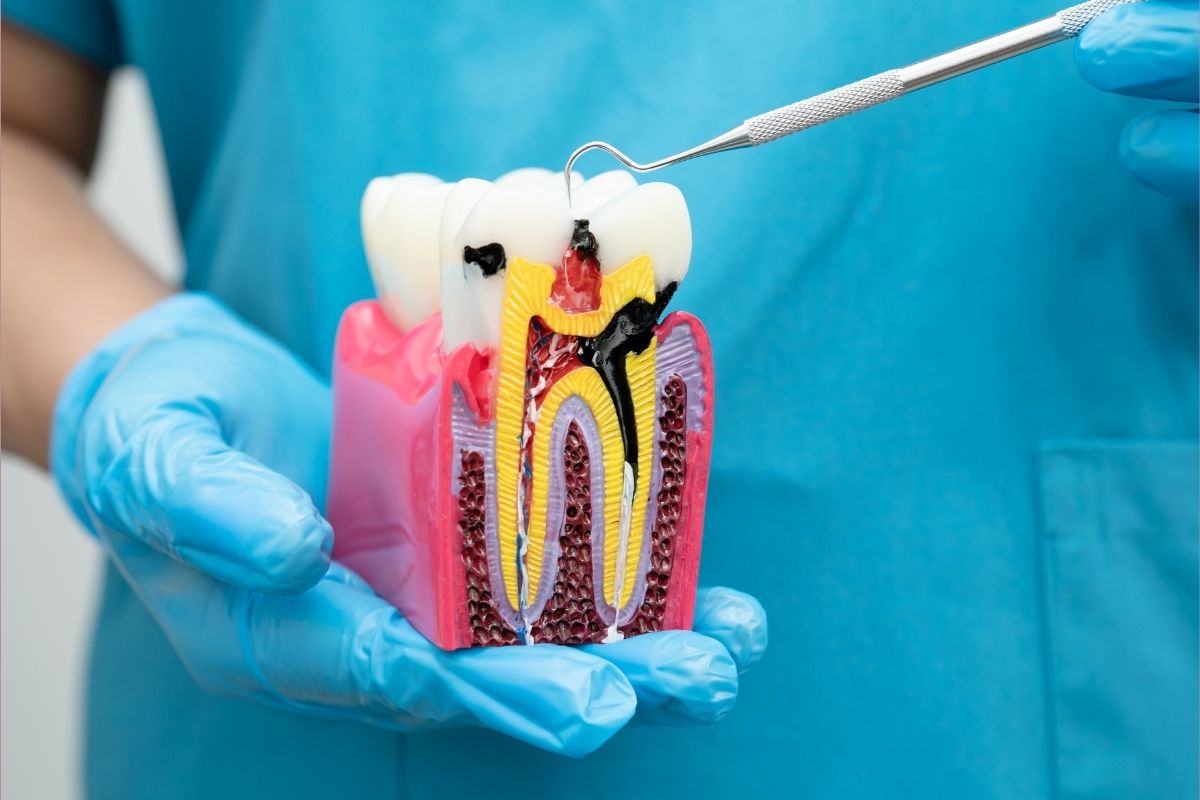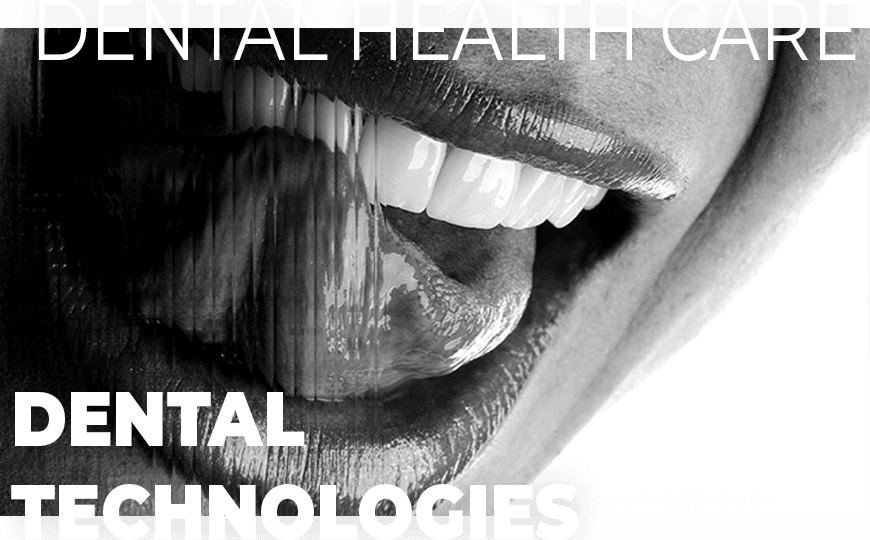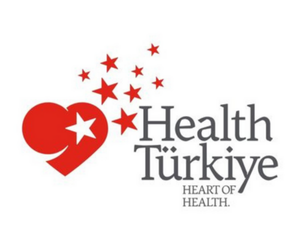
Blogs
Root Canal Treatment Aftercare – What Should You Know?

Table of Contents
What to Expect After a Root Canal Treatment?
Undergoing a root canal treatment at Helen Clinic – Antalya is a crucial step in saving a damaged tooth and relieving pain. After the procedure, it’s normal to experience mild discomfort, sensitivity, and slight swelling for a few days as the treated area heals. You may also feel slight tenderness when biting, but this will gradually subside. Your dentist may prescribe pain relievers or antibiotics if necessary to prevent infection and ease discomfort. It’s important to avoid chewing on the treated tooth until a permanent filling or crown is placed to prevent fractures. Following proper aftercare instructions will ensure a smooth and successful recovery. Now, let’s go over the essential aftercare tips for a quick and painless healing process.
Essential Aftercare Tips for a Smooth Recovery
Proper aftercare is key to a fast and comfortable recovery after a root canal treatment at Helen Clinic – Antalya. Here are some essential tips to ensure smooth healing:
- Take Prescribed Medications: If your dentist prescribes pain relievers or antibiotics, take them as directed to prevent discomfort and infection.
- Avoid Hard and Sticky Foods: Stick to soft foods to prevent unnecessary pressure on the treated tooth.
- Maintain Oral Hygiene: Brush and floss carefully, avoiding direct pressure on the treated area until it fully heals.
- Use Warm Saltwater Rinse: This helps keep the area clean and reduces inflammation.
- Rest and Avoid Strenuous Activities: Giving your body time to heal will speed up recovery.
- Don’t Skip Follow-Up Appointments: Your dentist will ensure that your tooth is healing properly and place a permanent filling or crown if needed.
Following these steps will help ensure a quick and successful recovery. Next, let’s discuss how to manage pain and sensitivity after a root canal.
How to Manage Pain and Sensitivity After a Root Canal?
Mild pain and sensitivity are common after a root canal treatment, but they can be effectively managed with the right approach. At Helen Clinic – Antalya, we recommend the following tips for a comfortable recovery:
- Take Pain Relievers as Directed: Over-the-counter pain medications like ibuprofen or paracetamol help reduce discomfort.
- Avoid Chewing on the Treated Side: Until a permanent filling or crown is placed, chewing on the treated tooth can cause pain or damage.
- Use a Warm Saltwater Rinse: This soothes the gums and helps reduce inflammation.
- Apply a Cold Compress: If you experience swelling, apply an ice pack to the cheek in 10-minute intervals during the first 24 hours.
- Avoid Hot, Cold, and Sugary Foods: Extreme temperatures and sugar can trigger temporary sensitivity.
- Follow Your Dentist’s Instructions: Attending follow-up visits ensures your healing is on track and any issues are addressed early.
With these simple steps, pain and sensitivity should gradually fade within a few days. Next, let’s explore the best and worst foods to eat after a root canal to avoid irritation and promote healing.
Foods to Eat and Avoid After a Root Canal Treatment
Your diet plays a crucial role in ensuring a smooth recovery after a root canal treatment at Helen Clinic – Antalya. Choosing the right foods can help reduce discomfort and protect the treated tooth from damage.
✅ Best Foods to Eat:
- Soft foods like mashed potatoes, scrambled eggs, and yogurt are easy to chew and gentle on your teeth.
- Smooth soups and broths provide nutrients without irritating the treated area.
- Cooked vegetables and soft fruits (bananas, avocados, applesauce) are nutritious and easy to eat.
- Protein-rich options like fish, tofu, and well-cooked pasta support tissue healing.
❌ Foods to Avoid:
- Hard and crunchy foods (nuts, chips, raw vegetables) can put pressure on the treated tooth.
- Sticky foods (caramel, chewing gum) may pull at temporary fillings or irritate the area.
- Very hot or cold foods (ice cream, hot coffee) can increase sensitivity.
- Sugary foods and drinks (sodas, sweets) promote bacterial growth and should be limited.
Eating the right foods helps ensure a faster recovery and long-lasting results. Next, let’s discuss how long it takes to fully heal after a root canal treatment.
How Long Does It Take to Heal After a Root Canal?
Healing after a root canal treatment varies from person to person, but most patients at Helen Clinic – Antalya experience significant relief within a few days. Mild sensitivity or discomfort may last for a few days to a week, while the full healing process can take a few weeks as the surrounding tissues recover.
- First 24-48 hours: Some tenderness and mild swelling may occur, but pain can be managed with medication.
- First week: Sensitivity when biting may persist, but it should gradually decrease.
- After a few weeks: The treated tooth stabilizes, and if needed, a permanent filling or crown is placed to restore full function.
To ensure optimal healing, follow your dentist’s aftercare instructions, maintain good oral hygiene, and attend follow-up visits. Now, let’s go over the best oral hygiene practices after a root canal to protect your treated tooth.
Oral Hygiene After a Root Canal: Best Practices
Proper oral hygiene is essential for protecting your treated tooth and ensuring long-term success after a root canal treatment at Helen Clinic – Antalya. Here are the best practices to follow:
- Brush Gently but Thoroughly: Use a soft-bristled toothbrush to clean your teeth twice daily, avoiding aggressive brushing near the treated tooth.
- Use an Alcohol-Free Mouthwash: An antibacterial mouthwash helps keep your mouth clean and reduces the risk of infection.
- Floss Carefully: Be gentle when flossing around the treated area to prevent irritation.
- Rinse with Warm Saltwater: This helps soothe the gums and prevents bacteria buildup.
- Avoid Smoking and Excessive Sugar: Both can contribute to infection and slow down the healing process.
- Attend Follow-Up Appointments: Your dentist will monitor the healing and place a permanent filling or crown if necessary.
By maintaining good oral hygiene, your root canal-treated tooth can last a lifetime without further complications. Next, let’s discuss the warning signs of complications and when to contact your dentist.
The Do’s and Don’ts After a Root Canal Treatment
Following the right aftercare steps is crucial for a smooth recovery and long-term success of your root canal treatment at Helen Clinic – Antalya. Here’s what you should and shouldn’t do:
✅ Do’s:
- Take prescribed medications as directed to manage pain and prevent infection.
- Brush and floss gently to maintain oral hygiene without irritating the treated area.
- Eat soft foods like yogurt, soups, and mashed potatoes to avoid stress on the tooth.
- Use a warm saltwater rinse to keep the area clean and reduce inflammation.
- Attend follow-up appointments to ensure proper healing and receive a permanent filling or crown if needed.
❌ Don’ts:
- Don’t chew on the treated tooth until it is fully restored with a permanent filling or crown.
- Avoid hard, crunchy, and sticky foods that could damage the temporary filling.
- Don’t skip oral hygiene routines, as neglecting care can lead to reinfection.
- Avoid smoking and alcohol, as they slow down healing and increase the risk of complications.
- Don’t ignore prolonged pain or swelling—contact your dentist if discomfort persists.
By following these guidelines, you can ensure a quick and hassle-free recovery. Next, let’s discuss whether it’s safe to smoke or drink alcohol after a root canal treatment.
Can I Smoke or Drink Alcohol After a Root Canal?
Smoking and alcohol consumption can significantly delay healing and increase the risk of complications after a root canal treatment at Helen Clinic – Antalya. Smoking reduces blood flow to the gums, which can slow down the recovery process and increase the chances of reinfection or implant failure. It also weakens the immune response, making it harder for your body to fight bacteria. On the other hand, alcohol can interfere with prescribed medications, reduce hydration levels, and irritate the treated tooth, leading to prolonged sensitivity or pain.
For the best results, avoid smoking and alcohol for at least a week after your root canal, and ideally, consider quitting smoking altogether to protect your long-term oral health. Now, let’s go over the best ways to protect and maintain your root canal-treated tooth for years to come.
How to Protect and Maintain Your Root Canal Treated Tooth?
A root canal-treated tooth can last a lifetime with proper care. At Helen Clinic – Antalya, we recommend following these steps to protect and maintain your treated tooth:
- Get a Crown or Permanent Filling: A root canal weakens the tooth structure, so placing a crown or durable filling ensures long-term strength and functionality.
- Brush and Floss Daily: Maintain good oral hygiene by brushing twice daily with a soft-bristled toothbrush and flossing gently to prevent bacteria buildup.
- Avoid Hard and Sticky Foods: Biting on hard candies, ice, or sticky foods can put unnecessary stress on the tooth and cause fractures.
- Schedule Regular Dental Checkups: Routine visits allow your dentist to monitor the tooth’s condition and address any issues early.
- Quit Smoking and Limit Sugar Intake: Smoking and excessive sugar can lead to further dental problems and increase the risk of reinfection.
By following these simple yet effective habits, you can ensure that your root canal-treated tooth remains strong and healthy for years to come. If you experience any discomfort or concerns, the Helen Clinic team in Antalya is always here to help!



